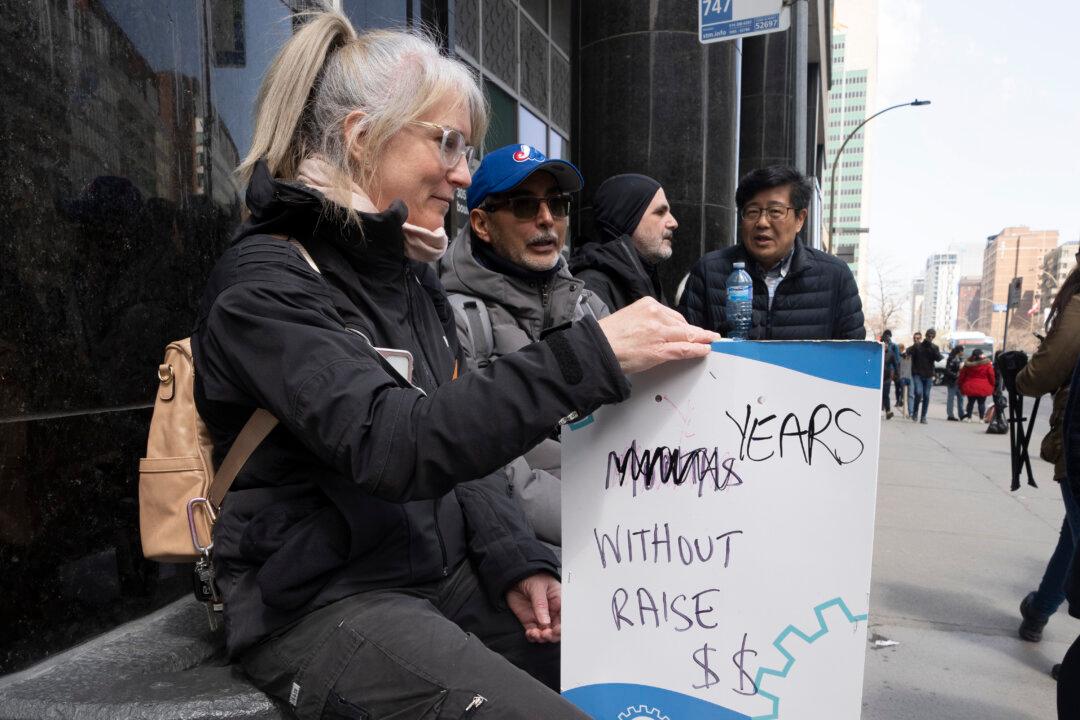Employees with the Public Service Alliance of Canada (PSAC) blocked access to Toronto Pearson International Airport on April 27 as the escalating strike over wages and remote work entered its ninth day.
Some 500 PSAC members held a demonstration at Pearson, which prompted the airport to advise passengers to give themselves more time amid the possibility of delays.





